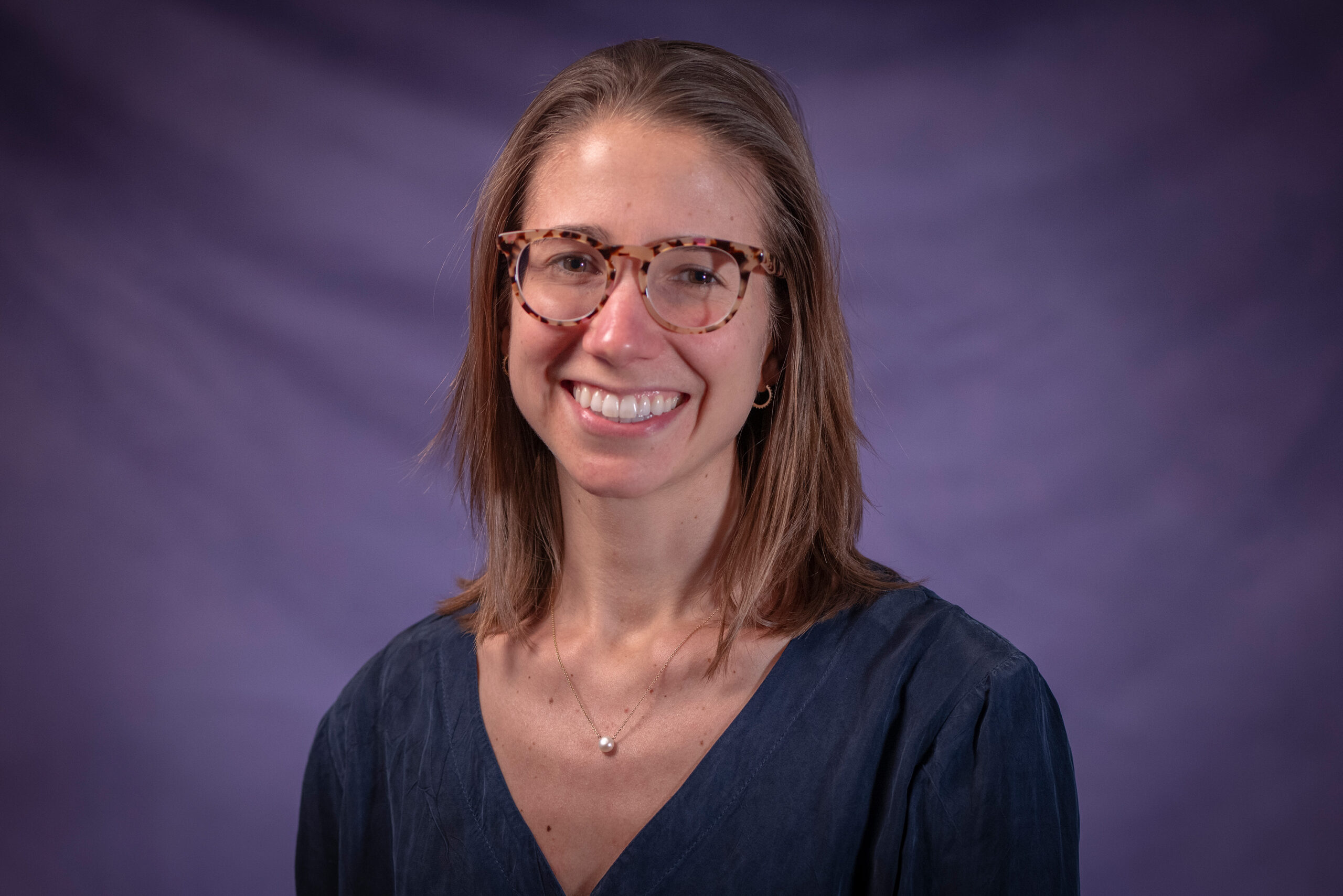 Emilie Martel-Rousseau is a DNP student in the Adult-Gerontology Primary Track and the de Tornyay Center for Healthy Aging’s 2023-2024 Myrene C. McAninch Doctoral Scholar. Her mentor is Assistant Professor Maya Elias and her de Tornyay Center research project is the “Dementia Action Collaborative Provider Survey.”
Emilie Martel-Rousseau is a DNP student in the Adult-Gerontology Primary Track and the de Tornyay Center for Healthy Aging’s 2023-2024 Myrene C. McAninch Doctoral Scholar. Her mentor is Assistant Professor Maya Elias and her de Tornyay Center research project is the “Dementia Action Collaborative Provider Survey.”
What interests you about healthy aging?
I always enjoy caring for and connecting with older adults. As I was entering this program, I wanted to focus more on what I can do for healthy aging because I think it is an area that will be more and more important with the increasing number of older adults. It’s definitely an area of need that I feel I’m comfortable in.
What has your past experience working with older adults been?
When I was in university, I lived with my grandmother, and I was her care helper. And then I did a lot of volunteering in retirement homes through nursing school. I help older adults in my community, for example with their groceries, so they can continue living autonomously. I love getting to know what is important in their lives. As a nurse, I have not worked in a geriatric clinic specifically, but a lot of our healthcare is with older adults and these are the patient visits I really look forward to.
So when I was trying to further my career and thinking about the DNP program, I was thinking, what do I want to do? What makes me most happy? What do I like the best? Since then, my goal has been to be a primary care provider for older adults. It was a great decision!
Could you talk a little bit about what the Dementia Action Collaborative is and what they do?
The Dementia Action Collaborative is a team across Washington State of public and private partners. They are working to prepare communities and the healthcare system for the increasing number of people living with dementia. In 2023, they updated their plan to address Alzheimer’s disease and related dementias.
Your project with the de Tornyay Center is a survey with the Dementia Action Collaborative. How did you first get involved with that work?
My first year at UW, I was part of the Health Equity Circle, which is an advocacy group of healthcare professional students. Our team was planning to lobby the Washington State Legislature. I was looking up different legislations I thought would be valuable for our team to lobby for, and at the time, the Dementia Action Collaborative was putting in a request to get renewed for their program to continue.
So that’s how I first found out about the Dementia Action Collaborative. I lobbied for them, and it was successful. I think it was a unanimous decision for it to pass and continue.
That’s how I got interested in it. I thought, wow, that’s so cool, I would love to be a part of the collaborative. Then when I saw that the Dementia Action Collaborative was looking for a DNP student to help them with this project, I was like, okay, that’s my first choice. I thought maybe I could get my foot in the door that way. It’s been an awesome opportunity so far.
With the survey that you’re doing as a part of your project, who are you surveying and what are you hoping to learn?
The survey is a needs assessment of healthcare providers in Washington State. We are hoping to learn the barriers, challenges, and successes of identifying and caring for people living with dementia from providers working on the frontlines.
We’re trying to get input from any provider that cares for older adults. Our primary target is primary care providers (PCPs). We also want to reach allied healthcare providers, so that could be the dentist or the eye doctor that sees the older adults and can connect the older adult to appropriate resources. The goal is to understand how our current healthcare system is caring for people living with dementia so that we can target areas to improve on.
What types of questions are you asking them?
We ask about screening, diagnosing, referring, and care management for people living with dementia. We also ask healthcare providers what they need and are interested in in terms of education and opportunities to improve their own practice.
How are you and the Dementia Action Collaborative hoping to use the survey results?
We will congregate and analyze the responses to the provider survey. We’re hoping to see what would be most helpful, where are the biggest gaps in our system right now, so that we can make changes and improve care. The results will also serve as a baseline to compare future surveys to and monitor progress in dementia-related care.
Why is this project important to do?
The Dementia Action Collaborative updates their statewide plan to address Alzheimer’s every five years. They just updated it in 2024. We hope the survey will get provider input, buy-in, and information from the front-line workers, so that we can make relevant and effective changes.
Has there been anything that surprised you while working on this project?
This is my first time being a professional leader in my DNP role. I’m learning a lot of leadership skills, such as leading meetings and proposing recommendations to higher-ups, which is exciting and useful for my future career.